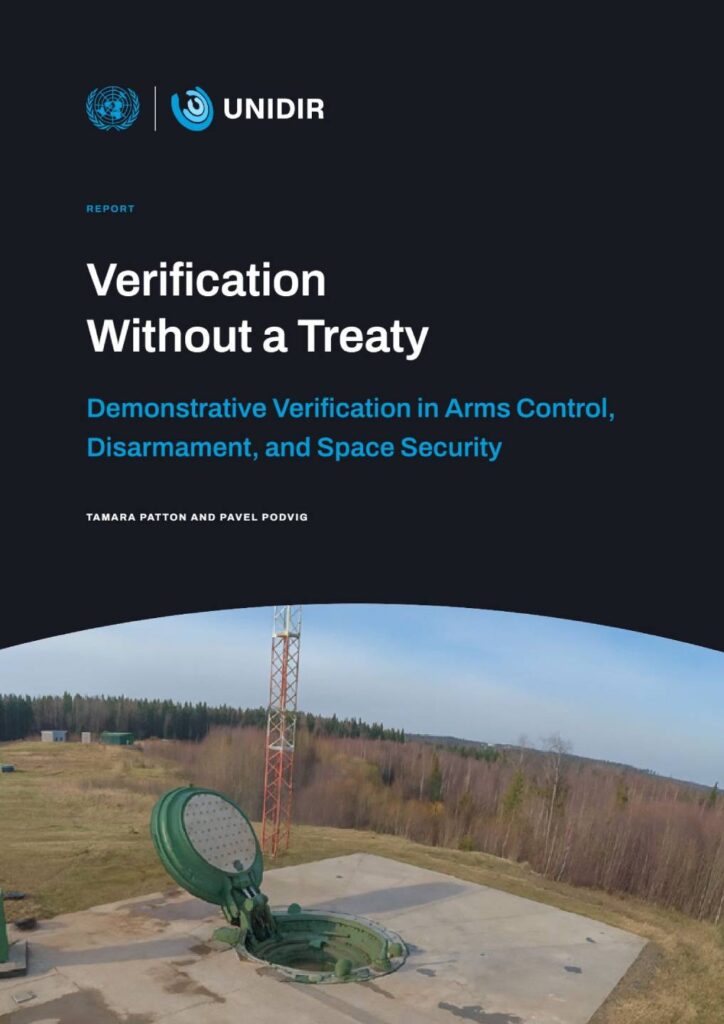In the established practice of nuclear arms control and disarmament agreements, verification provisions are negotiated as part of a treaty to provide States with a mechanism to assess compliance and to deter violations of its terms. However, it is becoming increasingly difficult to negotiate new legally binding agreements, whether bilateral or multilateral. In some areas, in the absence of a functioning treaty, States assume certain obligations that constrain their behaviour, such as moratoriums on fissile material production or explosive nuclear tests, or a commitment to constrain deployment of some weapon systems. However, without agreed verification mechanisms, it is often difficult to confirm compliance with such obligations.
This report suggests an approach to verifying obligations assumed by States through a mechanism of demonstrative verification, in which a State that wants to demonstrate compliance with its obligations unilaterally implements measures to positively prove its compliance to an international audience. To be effective, these measures must include a detailed verification protocol, rely on open data rather than intelligence estimates, and potentially involve independent observers. This report discusses potential applications of this approach to nuclear arms control and space security.
Citation: Tamara Patton and Pavel Podvig, "Verification Without a Treaty. Demonstrative Verification in Arms Control, Disarmament, and Space Security", UNIDIR, Geneva, 2025. https://doi.org/10.37559/WMD/25/NDV/01.
